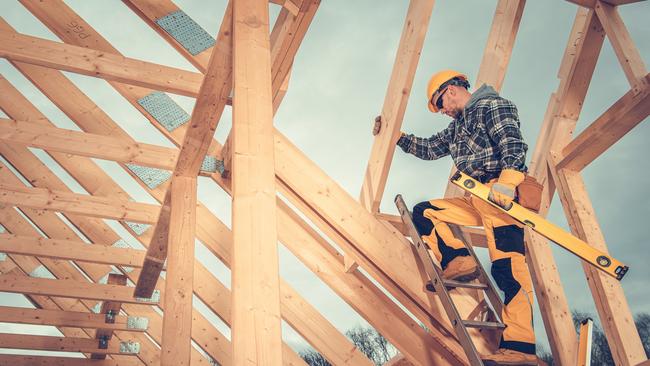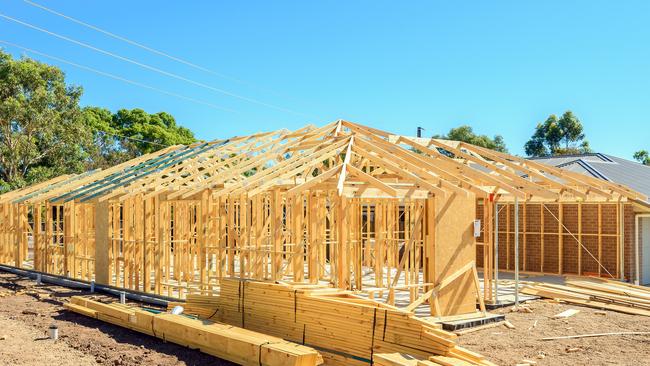New house charges to plummet across NSW after Daily Telegraph story
Water connections to new homes in outer Sydney could cost tens of thousands of dollars less after Sydney Water recommended reducing the infrastructure levies last week.

NSW
Don't miss out on the headlines from NSW. Followed categories will be added to My News.
Water connections to new homes in outer Sydney could cost tens of thousands of dollars less after Sydney Water recommended reducing the infrastructure levies last week.
This comes after The Daily Telegraph revealed in May a single new home could face levies of up to $90,000 to connect to drinking water and sewage services, sparking backlash from developers concerned the charges would cripple the construction of new dwellings.
The increased charges were proposed in a bid to cover the cost of new water connections for the large number of new homes being built on Sydney’s outskirts. Under the current system Sydney Water partially funds water connections to new developments.
Following significant pushback from developers, Sydney Water submitted recommendations to reduce the fees by up to 30 per cent to the Independent Pricing and Review Tribunal. The Tribunal will have ultimate say over whether the fees are reduced.
Under the reduction proposal, the Upper Nepean region will see charges reduced from $21,276 to an estimated $15,141 per dwelling for wastewater services.

Additionally wastewater service charges in the Greater Macarthur area will drop from $40,782 to $34,919, with further reductions recommended across other parts of Sydney.
Sydney Water general manager Chris Gould said while he acknowledged both customers and developers were feeling the pinch, infrastructure contributions were essential to keep water bills from skyrocketing.
“Every utility across the country requires developers to contribute to the costs of new developments on new or existing water and wastewater systems,” he said.
“Infrastructure contributions are critical to keep our bills affordable – If these charges are not introduced, our customers become responsible for covering the cost of any infrastructure associated with future growth and development.”

Mr Gould said without infrastructure contributions from developers, customers would eventually have to fork out an additional $80 per year on top of their existing water bill by the end of the decade.
Yet development industry bodies argue that while the reduction of charges is welcome, the proposed infrastructure contributions would still hamper plans to develop thousands of new homes around Sydney.
Urban Taskforce chief executive Tom Forrest said the extra charges would inevitably be passed onto new homebuyers.
“We’re pleased because the lesser the amount, the lesser the impact but we’re still talking about some fairly large amounts of money … we’re still talking $30,000 a lot” he said.
“Affordability of rent and new houses will be directly impinged by an increase in fees, taxes and charges.”
Mr Forrest said the development community was calling on the Minns government for assistance in paying for these charges to keep the cost of building new houses down.
Infrastructure levies to pay for water connections are just the beginning of news costs to developers. The Daily Telegraph revealed last week developers could pay up to $30,000 extra to ensure new homes comply with energy efficient building codes as well as $37,000 extra in biodiversity and transport charges.




